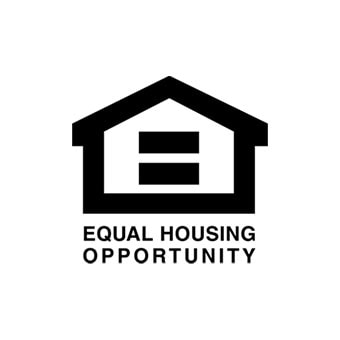Reverse Mortgage lender serving Mt Pleasant from our Mt. Pleasant office.
Please call for a free consultation and a personalized information package based on your goals and what you would like to accomplish. I will gladly travel to your residence or a place of your choosing to meet with you if you apply.
Please call for a free consultation and a personalized information package based on your goals and what you would like to accomplish. I will gladly travel to your residence or a place of your choosing to meet with you if you apply.

Rethinking Reverse Mortgages
At one time, most people used a Home Equity Conversion Mortgage (HECM) loan -commonly known as a reverse mortgage-to pay off their mortgage and improve
their overall monthly cash flow.
But over the years, financial advisors and other trusted professionals began to realize that a reverse mortgage could be an important, effective part of a sound
and rewarding retirement funding strategy.
However, a reverse mortgage is not the best option for everyone. I am here to educate you on both the pluses and minuses of a reverse mortgage so you can
make a decision that is right for your unique circumstances.
What is a Reverse Mortgage?
A reverse mortgage is a loan that enables homeowners 62 and older to convert part of the equity in their homes into cash without having to sell the home, give up title, or take on a new monthly mortgage payment (principal and interest).
Minimum Requirements
Payment Options
You can choose to take your funds as:
Speak with a Reverse Mortgage Consultant
If you don't speak with a specialist, how do you know if you are getting the most current information to base your decision on?
Make sure you talk with a Licensed Professional, that specializes in Reverse Mortgage Origination.
Questions to Ask your Loan Officer:
At one time, most people used a Home Equity Conversion Mortgage (HECM) loan -commonly known as a reverse mortgage-to pay off their mortgage and improve
their overall monthly cash flow.
But over the years, financial advisors and other trusted professionals began to realize that a reverse mortgage could be an important, effective part of a sound
and rewarding retirement funding strategy.
However, a reverse mortgage is not the best option for everyone. I am here to educate you on both the pluses and minuses of a reverse mortgage so you can
make a decision that is right for your unique circumstances.
What is a Reverse Mortgage?
A reverse mortgage is a loan that enables homeowners 62 and older to convert part of the equity in their homes into cash without having to sell the home, give up title, or take on a new monthly mortgage payment (principal and interest).
Minimum Requirements
- Age 62 or older
- Own and live in your home
- Home must be your principal residence, and meet HUD guidelines
- Complete HECM counseling session
Payment Options
You can choose to take your funds as:
- A Line of Credit
- Monthly payments
- Upfront Cash
- Any combination of the above
Speak with a Reverse Mortgage Consultant
If you don't speak with a specialist, how do you know if you are getting the most current information to base your decision on?
Make sure you talk with a Licensed Professional, that specializes in Reverse Mortgage Origination.
Questions to Ask your Loan Officer:
- Do you Specialize in Reverse Mortgages?
- Have you been specifically trained to advise about Reverse Mortgages?
- How long have you been originating Reverse Mortgages?
- Are you a member of the National Reverse Mortgage Lenders Association (NRMLA)?

Reverse For Purchase
While many who pursue a reverse mortgage do so to retire debt or pay health expenses, a reverse for purchase can help you downsize into a home more suited to a retirement lifestyle. The benefit of a reverse for purchase is that it enables you to combine funds from the sale of your current home with other sources of cash and reverse mortgage proceeds to purchase your new home outright, eliminating any mortgage principal and interest payment.
Potential Benefits
• Transition from multi-story home to single story
• Downsize or Up-size
• Move into a 55+ community
• Less Yard, Less Maintenance
• Relocate closer to children and grandchildren
• Closer to shopping, medical, etc
Eligible Properties
• Single Family Residence
• HUD Approved Condos
• Townhouses
• Must occupy as primary residence
While many who pursue a reverse mortgage do so to retire debt or pay health expenses, a reverse for purchase can help you downsize into a home more suited to a retirement lifestyle. The benefit of a reverse for purchase is that it enables you to combine funds from the sale of your current home with other sources of cash and reverse mortgage proceeds to purchase your new home outright, eliminating any mortgage principal and interest payment.
Potential Benefits
• Transition from multi-story home to single story
• Downsize or Up-size
• Move into a 55+ community
• Less Yard, Less Maintenance
• Relocate closer to children and grandchildren
• Closer to shopping, medical, etc
Eligible Properties
• Single Family Residence
• HUD Approved Condos
• Townhouses
• Must occupy as primary residence

Homeowner Responsibilities
Continuing home ownership responsibilities include:
Continuing home ownership responsibilities include:
- Property Taxes and Insurance
- Property Maintenance
- Occupancy Requirements
Home
Copyright © 2023 by George Stewart
All rights reserved. The author is solely responsible for this content and is not affiliated with or acting on behalf of any government agency.
All rights reserved. The author is solely responsible for this content and is not affiliated with or acting on behalf of any government agency.
This material is not from, approved, or issued by the FHA, HUD, or any government agency. The content on these pages is for informational purposes only and is subject to change without notice. Please consult a professional for tax or financial advice.
A reverse mortgage is a home loan and not a government benefit. The borrowers must continue to own and occupy the property as the primary residence and are responsible for paying property taxes, homeowner's insurance, and property maintenance.
A reverse mortgage is a rising debt, falling equity loan. Negative amortization causes the loan balance to increase as accrued interest and fees are added. Failure to comply with the terms and conditions of the loan could trigger a loan default that results in foreclosure.
Subject to underwriting approval. Application is required and not all applicants will be approved. Full documentation and property insurance required. Loan secured by a lien against your property. Fees and charges apply and may vary by product and state. Terms, conditions and restrictions apply.
A reverse mortgage is a home loan and not a government benefit. The borrowers must continue to own and occupy the property as the primary residence and are responsible for paying property taxes, homeowner's insurance, and property maintenance.
A reverse mortgage is a rising debt, falling equity loan. Negative amortization causes the loan balance to increase as accrued interest and fees are added. Failure to comply with the terms and conditions of the loan could trigger a loan default that results in foreclosure.
Subject to underwriting approval. Application is required and not all applicants will be approved. Full documentation and property insurance required. Loan secured by a lien against your property. Fees and charges apply and may vary by product and state. Terms, conditions and restrictions apply.


